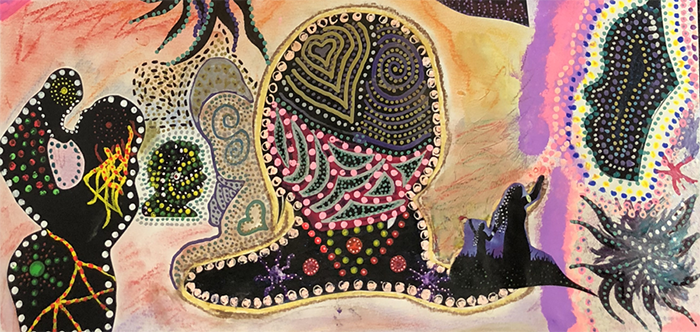CHN, ACT’s PHN commissioned Canberra Alliance for Harm Minimisation and Advocacy (CAHMA) to deliver two Aboriginal and Torres Strait Islander specific programs, “Peer Treatment Support Service” and “The Connection”.
a) Peer Treatment Support Service
CAHMA’s Peer Treatment Support Service (PTSS) provides person-centred case management services and peer support to Aboriginal and Torres Strait Islander people who use alcohol and other drugs and supports them to access other drug treatment services in the ACT. PTSS workers are peers who are skilled in complex case management who support long-term health and wellbeing of individuals by walking with them through their journey. They help individuals with specific issues around drug and alcohol to meet their goals and needs through person-centered approaches. They provide case planning, advocacy, drop in support and supported referrals.
Over the last year, CAHMA provided over 530 occasions of service with a steady growth in client numbers as CAHMA returned to its Community Centre after lockdowns. The type of work that the PTSS conducted has returned to highly complex case management work with primary drug of concern returning to pre-COVID patterns (opioids then amphetamines were most common followed by alcohol, cannabis and tobacco).
Community needs focused on access to detoxification and rehabilitation treatment, pre-hospital planning and post hospital stabilisation, and social determinants of health case management (homelessness, Child and Youth Protection Services engagement, food and clothing relief, referral and support to access legal services).
PTSS played a key role in reducing and eventually bringing to zero the number of COVID-19 infections in CAHMA’s target cohort. PTSS worked with other CAHMA programs and services to help keep our community safe. This included the month-long lockdown of approximately 180 highly marginalised community members in Ainslie Village. CAHMA partnered with the Canberra Health Service’s REACH team and Directions Health Services to support their primary health needs and social determinants of health needs. This lead to CAHMA having direct input into the Community Service Directorate-led Ragusa Quarantine Centre Community Hub, where lessons learned on the ground around keeping marginalised community members safe during isolation was fed into a successful model of integrated care used at Ragusa.
b) The Connection
The Connection is a low threshold non-judgemental service for indigenous people who use drugs and are seeking to engage with ACT drug treatment services. The Connection works on the principles of harm reduction and empowering people to take control of their health and wellbeing in order to improve the quality of their lives. The program is delivered by a small team of peer-based AOD Aboriginal and Torres Strait Islander workers, as well as several mainstream staff.
CAHMA employs an Aboriginal and Torres Strait Islander Case Manager and Worker to build capacity within The Connection and meet the individual needs of clients to gain access to culturally sensitive AOD services. Under this initiative, CAHMA run Mura Gadi which is a peer education program that enhances the knowledge and engagement of Indigenous clients. The program provides information about how drugs affect your body, how to minimise drug use, drug and alcohol treatment, and how to maintain a healthy lifestyle. For much of the last year, Mura Gadi conworkshops have been on hold due to the COVID-19 risk involved with groups working together in a closed space. In June 2022, The Connection was able to run a Mura Gadi group with eleven people attending, several who took the opportunity to share some of their own experiences with opioid use.

